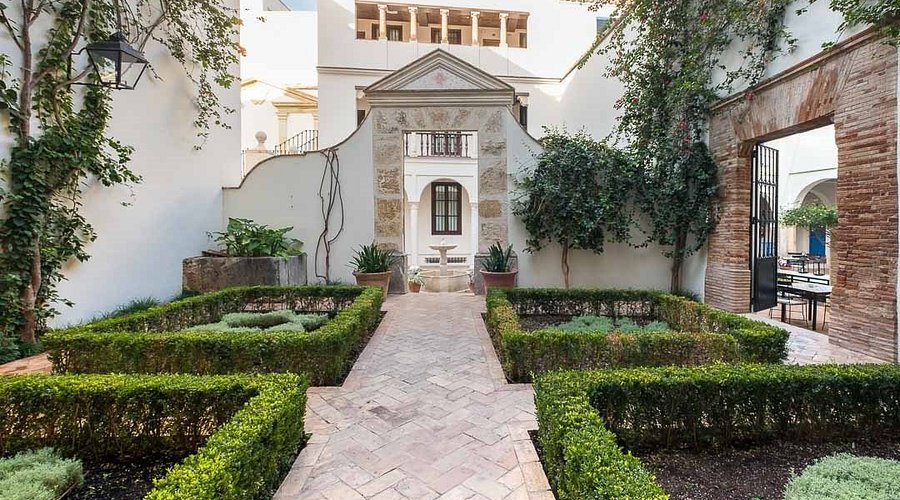Andalusia, a region steeped in history and vibrant culture, stands as a testament to the confluence of civilizations. For centuries, it served as a crucible where Islamic, Christian, and Jewish traditions intertwined, leaving an indelible mark on its architecture, arts, and way of life. Within this rich tapestry, the Jewish quarter, or Judería, played a pivotal role, fostering intellectual discourse, artistic expression, and economic prosperity. Today, amidst the charming cobblestone streets and sun-drenched courtyards of Seville, there exists a remarkable establishment that embodies the spirit of this bygone era: the Casa de la Juderia. More than just a hotel, the Casa de la Juderia is a living museum, a dedicated conservator of Andalusian heritage, offering guests an immersive journey into the past.
The story of the Judería in Seville is one of both brilliance and hardship. From the 11th to the 15th centuries, Seville’s Jewish community flourished, contributing significantly to the city’s intellectual and economic life. They were scholars, poets, physicians, and merchants, their synagogues and schools forming vibrant centers of learning. However, the tides turned with the rise of religious intolerance, culminating in the expulsion of Jews from Spain in 1492. Despite the profound loss, echoes of their presence remained etched in the urban fabric. The architecture, the layout of the streets, and the very spirit of the quarter continue to whisper tales of a diverse and dynamic past.
It is this profound history that the Casa de la Juderia meticulously endeavors to preserve. The hotel is not a modern construction built to mimic an old style; rather, it is a magnificent amalgamation of several historic houses, some dating back to the 15th century. These individual residences, once part of the original Judería, have been lovingly restored and seamlessly integrated, creating a sprawling complex of interconnected patios, fountains, and secret passages. Walking through its corridors feels like stepping back in time, each archway and every tiled floor revealing layers of history. The commitment to authenticity is palpable, from the antique furnishings and original artworks to the traditional Sevillian patios adorned with fragrant orange trees and bougainvillea.
One of the most striking features of the Casa de la Juderia is its extraordinary collection of artifacts. Throughout the hotel, one encounters a treasure trove of antique furniture, tapestries, ceramics, and works of art, carefully curated to reflect the diverse influences that shaped Andalusian culture. Each piece tells a story, contributing to the overall narrative of the hotel’s historical context. The intricate Mudejar ceilings, a testament to the exquisite craftsmanship of Moorish artisans working under Christian rule, are particularly breathtaking. These architectural elements are not merely decorative; they are integral to the identity of the Casa de la Juderia, embodying the fusion of cultures that defined medieval Andalusia.
Beyond its physical preservation, the Casa de la Juderia also strives to keep the spirit of Andalusian heritage alive through its dedication to traditional customs and hospitality. The experience of staying at the hotel transcends mere accommodation; it is an immersion into the local way of life. Guests can enjoy the tranquility of the traditional patios, listen to the gentle murmur of fountains, and savor the scents of orange blossoms, echoing the rhythms of life in historic Seville. The staff, deeply knowledgeable about the hotel’s history and the surrounding area, further enrich the experience, offering insights into the rich cultural tapestry of Andalusia.
The very location of the Casa de la Juderia is significant. Situated in the heart of Seville’s Santa Cruz neighborhood, the former Jewish Quarter, it provides unparalleled access to some of the city’s most iconic landmarks. The majestic Seville Cathedral and its Giralda tower, the Alcázar palace, and the labyrinthine streets of the Judería are all within a stone’s throw. This strategic position allows guests to not only witness but also to feel the historical pulse of the city, experiencing firsthand the vibrant atmosphere that has captivated visitors for centuries. The hotel acts as a harmonious extension of its surroundings, blurring the lines between accommodation and historical exploration.
The preservation efforts undertaken by the Casa de la Juderia extend beyond its immediate premises. The hotel actively participates in and supports initiatives aimed at promoting and safeguarding Seville’s cultural heritage. By providing a platform for cultural exchange and by educating its guests about the importance of historical preservation, the Casa de la Juderia plays a vital role in ensuring that the legacy of Andalusia continues to inspire future generations. It stands as a powerful reminder that history is not just about dusty textbooks and forgotten dates; it is a living entity that can be experienced, felt, and cherished.
In an increasingly modernized world, the Casa de la Juderia offers a refreshing antidote – a sanctuary where time seems to slow down, allowing for deeper reflection and appreciation of the past. It is a place where the echoes of ancient melodies still resonate, where the aroma of orange blossoms fills the air, and where the stories of a rich and diverse heritage are lovingly preserved. The Casa de la Juderia is not just a destination; it is a journey into the soul of Andalusia, a testament to the enduring power of history, and a beacon of cultural preservation for generations to come. Its commitment to honoring the past ensures that the spirit of the Judería, with its vibrant mix of cultures and intellectual prowess, continues to flourish, offering a profound and enriching experience to all who step through its historic doors.
